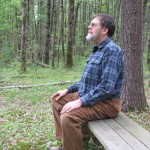“Ms. Bishop, are you a Witch?”
Picture it–I’m about to give a reading quiz to a group of less-than-prepared high school students. They, of course, are thinking that a diversion would be sweet right about now. And one of them has just the thing. Turns out, he’s done the inevitable, and Googled my name.
“Ms. Bishop, are you? Are you a Witch? Are you a _practicing_ Witch?”
So there I am, clock ticking, a stack of quizzes in my hand, and for once all student eyes are on me. And about 50,000 things are going through my head at once, including:
– The urgent question, what does this kid think the word, “Witch” means?
– The urgent question, what do all the other kids in this classroom, and every member of their extended families, think the word “Witch” means?
– The comic comeback, “Nope, I stopped practicing and now I’m the real thing.”
– The importance of the separation of church and state.
– The reasonably large population of fundamentalist Christian families in my school district.
– The importance of plain speech and truth-telling.
– My mixed feelings around no longer wearing a pentacle every day in plain sight.
– The fact that the pentacle both does and does not seem to reflect who I am of late.
– The fact that I feel like a coward for not wearing it.
– The fact that I feel like a bulls’ eye target when I do wear it.
– The rueful thought, “So much for taking down my Wiccan web page for the sake of discretion.”
– The fact that to hesitate in answering the question implies guilt or shame.
– The courage it has taken for many of the Pagan students at our school to own that identity publically.
– The fact that owning the Quaker half of my spirituality is so much less charged, and the sense of relief in having at least one identity I can acknowledge without having to explain myself has given me.
– The confusion at not having a simple answer to a simple question.
I’ll spare you the rest of the set. But when this scene took place, a few months ago, it set off an incredible conflict inside of me. I’m still wrestling with a mass of contradictory impulses, ideas, and feelings.
I’m not happy, either as a Pagan or as a Quaker, with how I handled that question. I _have_ been using the Quaker half of my identity as a shield, which is incredibly non-Quaker. (I know, I know!) But (and even I hear the rationalizing tone in that but, however truthful that which follows may be) I have so _loved_ feeling that I have a truthful answer to the question of what my religion is that does not automatically earn me hatred and condemnation. It’s a lovely thing.
I suppose it’s what light-skinned black people may have felt, at least in recent years, at being taken for white. A sense of guilt at allowing the misperception to continue, maybe, but also a relaxing of the guard, and a relief at not having, temporarily, at least, to fight the good fight. Justice is tiring…
Complicating the matter is the fact that, like the light-skinned black person, I _am_ what I seem to be at the same time that I also am not. Just as the skin simply is the color it is, without reference to human preconceptions, so my religious practices are, indeed, Quaker. Can’t help it, guys–I’m not _just_ a Pagan anymore.
And then there are all those different feelings around the vocabulary of Paganism: Witch, Wiccan, High Priestess, clergy, Goddess, Horned God… all have different emotional and cultural charges, in the world of my public school, in the world of my Quaker meeting, and in the wider Quaker world. Not to mention that all these words have meant different things to me, at different times…
When I first became Pagan, “Pagan” was a word that was used to describe people with an Earth-centered spirituality who had not had training in a “real” Pagan tradition, like Druidry or Wicca. The importance of training was emphasised in many books and articles, and I wanted, so badly, to find other practicing Pagans in “real” traditions so that I could be a “real” Pagan, too.
When I found a group, finally–the Church of the Sacred Earth–I found self-taught practitioners and initiated Wiccans, and we eventually formed a little bootstrapped coven of self-taught but well-read, grounded men and women we called the Coven on Wheels… COW for short, a joke based on our needing to travel long, dairy-farm-filled miles in Vermont to meet at all.
In those years, I called myself a Witch. I felt that the word was…well, plain. Wiccans, I thought then, were mealy-mouthed people who were members of initiatory groups that looked down on those of us who were making it up as we went along. These were the folks who said you couldn’t really be a Witch (or a Wiccan) unless you were initiated by another Witch (Wiccan). Which begs the question, who initiated the first Witch? I decided the Gods did, and that Wiccans, by definition, were snobbier than the Gods. So, at that time, I called myself a Witch. And though I didn’t enjoy the misperceptions some people had about what that word meant, well, neither did I worry about it over-much. And I enjoyed the resonances with folk-tales and myths, stories about little old women who lived on the edge of a forest, gathered herbs, and always knew what to do when asked for wisdom. That’s who I wanted to be. During this period, I did my magic barefoot, learned a lot of herbal remedies, and made a point of not owning any tools that looked like anything but kitchen tools.
Time passed, and I learned more about “the Craft” and its history. The more I read and the more I learned, the more clear it came to seem to me that the origin stories Witches/Wiccans like to tell, about unbroken lineages of nature-worshippers stretching back, if not to the actual Neolithic, certainly to the Middle Ages were… not true. I came to accept the more modern, scholarly view that modern day Wicca is rooted in the folklore movement of the 19th Century, and became a religion with actual specific beliefs and practices during the 1950s, when a man named Gerald Gardner took a bunch of Golden Dawn ritual magic materials, some Masonic ceremony, and a pinch of folklore, blended them, and dubbed the result Wicca: The Old Religion.
From this perspective, it was the word “Wicca” that seemed the less pretentious. By calling myself Wiccan, I now felt that I was acknowledging the actual history of my religion, however un-glamorous it might be, and agreeing to be true to it.
It didn’t hurt, I confess, that the word “Wicca” was beginning to gain some credibility in the wider, non-Pagan world. People, non-Pagan people, had heard of it and in some cases already knew some positive things about it–that it involved nature-worship and reverence for the feminine as well as masculine face of the divine. And, since at this time I was becoming more and more of a public representative of my religion, I did value having a word that I could use that didn’t carry quite so much negative baggage as the word “Witch.” Still, most of the time that the subject of religion was relevant at all, I was talking to other Pagans, and the word “Wiccan” actually carried _less_ mystique than the other W word. So, it was both a convenient word and a plain one, in ways that appealed to me.
I have a ring which I still wear that I found at about that time. It’s an Eastern Star ring–the Eastern Star being a kind of women’s auxillary to the Masonic groups that loaned so much of the surface trappings to modern day Wicca, and also a very “plain” group, at least in my mind. I found the ring in an antique store in Maine, where my grandparents lived. My grandfather was a Mason. Many of the pie-baking, rummage-sale Methodists and Baptists in the towns my family lived would have been members of Eastern Star. And so, while the ring has a very mysterious-looking Masonic star on it, to me it is an emblem, not of exotic mystery, but of the mystery of the everyday–of men and women living ordinary, good lives in ordinary American towns. When I wear that ring, I feel that I’m owning the real roots of my Pagan practice: not really anything very far away and long ago, but something quite down-to-earth and prosaic. And since Paganism is the religion that honors the immanent sacredness of the everyday, that seemed especially appropriate to me.
And it could pass for an ordinary antique. Notice how the strains of honesty and plainness and of passing and sleight-of-hand lie side by side here? Turn the experience one way, and it reflects integrity. Turn it another, and it’s about convenience and hiding one’s Light. In honesty, I have to own them both.















